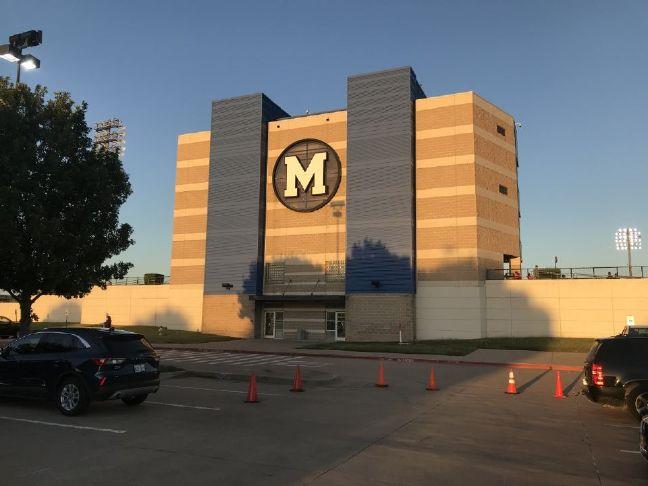A number of options were on the table on Monday evening as the Midlothian ISD board of trustees addressed ways to reduce a projected 2025-2026 budget deficit of about $5.45 million during the board’s third budget meeting of the year.
“We’ve got a major deficit, and we’ve got to figure out how to overcome it,” board president Gary Vineyard said.
Among the methods discussed to increase revenue was student transfers into MISD. Superintendent Dr. David Belding said allowing transfers would increase funds between $1.7 million and $2.9 million based on state per-student allotments and an attendance rate of 95.5 percent, which the state uses to calculate funding.
Transfers in grades K-8 would be accepted, and each transfer would be approved one school year at a time. Students would be vetted for academics, attendance and behavior at their previous schools, among other criteria. A change would require an update in school board policy.
Belding and MISD human capital officer Dr. Aaron Williams were optimistic that enough funding would clear the Texas Legislature under House Bill 2 to allow for a 3-percent pay increase, with starting pay at $59,000 and additional stipend increases. Williams said a 3-percent raise would put MISD within reach of the market median, a long-sought goal of the district.
Belding presented six options with differing variables. The final variable would be the calling in November of a second voter-approved tax rate election, or VATRE. The combination of a VATRE, student transfer allowance, and the passage of both HB2 and Senate Bill 260, which provides school safety funds, would put MISD in the black by $3.2 million, which Belding said would allow the district to reduce class sizes and strengthen its compensation.
Everything except a VATRE would still leave the district with a surplus of $568,315, even with a 3-percent compensation increase. But Belding pointed out that the district would still need to replenish its fund balance to recoup this year’s deficit.
Trustees went over the current school year budget and took a look at how next year’s budget is shaping up, with the latest budget assumptions, what the state legislature is working on, and ways for the district to generate revenue to cover what MISD assistant superintendent of business and operations Dr. Rebecca Metzger said was a projected shortfall of $5.45 million, which is an improvement from an original projection of $6.34 million.
Metzger said state revenues are slightly higher than projected because of a slightly larger enrollment as well as increased pass-through revenue from the Texas Education Agency to teachers.
The district is projecting a 2-percent enrollment increase and a 5.92-percent increase in property values. Based on tax rate compression due to value growth, the district’s projected property tax rate for maintenance and operations would be 64.65 cents per $100 taxable valuation in the new school year — a more than 2-cent decrease from the current rate. Combined with a projected interest-and-sinking rate of 41 cents, the total tax rate would be $1.0565.
Combining state and local revenue projections, Metzger said MISD is looking at a yield of just over $4.5 million in additional revenue.
On the other hand, Metzger told trustees the district is expecting an increase of about $1.24 million in increased operational (non-payroll) expenditures in the next school year. However, the district is expecting a substantial decrease in insurance costs of more than $215,000 from what was originally projected.
Staff has been able to trim almost $491,000 from the operating budget by cutting supplies, reducing staff and campus travel, and making other reductions in grounds maintenance, employee recruiting efforts, student assessment costs, and athletics. Superintendent Belding said a number of these cuts are short-term and could be reversed if the budget situation improves.
Williams said the district’s goal is to maintain a maximum 26-to-1 class size ratio. Because payroll is by far the district’s largest expense, Metzger added, that and other operational expenses were how the $5.45 million deficit was arrived at.
District public information officer Tammy Kuykendall briefed the board on possible revenue generators for the district: growing advertising and partnership opportunities, expanding facility rental opportunities, and new programs and miscellaneous opportunities.
In other business at the beginning of the meeting, the board approved the nomination of trustee Jessica Ward to the Texas Association of School Boards board of directors; approved nominations for recipient of the Servant Leader Award; and approved a bid from Venus Construction for the purchase of a school-owned 4-acre property along U.S. Highway 287.




